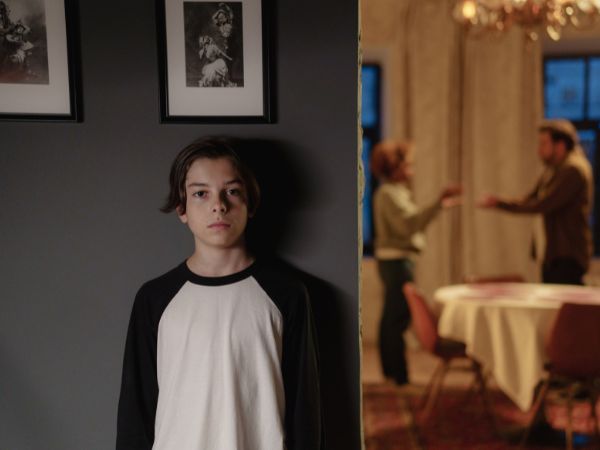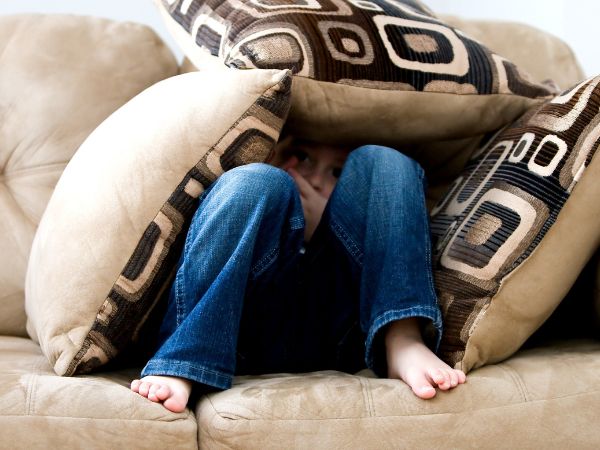Just In
- 3 hrs ago

- 6 hrs ago

- 8 hrs ago

- 10 hrs ago

Don't Miss
- Finance
 Decoding PSU Index: Post-COVID Rally To Continue After Elections? Top Stocks To Bet
Decoding PSU Index: Post-COVID Rally To Continue After Elections? Top Stocks To Bet - Sports
 IPL Moments: On This Day - KKR's Brendon McCullum and his Iconic 158 at the Chinnaswamy Stadium
IPL Moments: On This Day - KKR's Brendon McCullum and his Iconic 158 at the Chinnaswamy Stadium - Movies
 Pushpa 2 OTT Rights SOLD: Allu Arjun-Rashmika Mandanna's Hyped Sequel Makes A RECORD Deal On Netflix; Details
Pushpa 2 OTT Rights SOLD: Allu Arjun-Rashmika Mandanna's Hyped Sequel Makes A RECORD Deal On Netflix; Details - News
 Tamil Nadu Polls: Are You A First Time Voter? From Finding Polling Booth To Casting Votes, Here Is A Guide
Tamil Nadu Polls: Are You A First Time Voter? From Finding Polling Booth To Casting Votes, Here Is A Guide - Education
 PSEB Class 10 Result 2024 Declared
PSEB Class 10 Result 2024 Declared - Automobiles
 The Rezvani Retro RR1 Is A Modified Porsche 911 Done Right
The Rezvani Retro RR1 Is A Modified Porsche 911 Done Right - Travel
Unveiling The Spiritual Heart Of India Through Its Historic Cities
- Technology
 Paytm Begins Migrating Customers to New UPI IDs: What Does it Mean for You?
Paytm Begins Migrating Customers to New UPI IDs: What Does it Mean for You?
Depression In Children: Does My Child Have A High Risk Of Suicide? What Parents Should Know
Children, like adults, experience emotional ups and downs. For some children, feeling blue for an extended period of time can be indicative of depression.
There is a difference between childhood depression and the normal blues and everyday emotions that children experience as they develop. Just because a child seems sad does not necessarily mean that they are suffering from significant depression [1].

While depression is a serious illness, it is also a treatable one. If the sadness persists or interferes with normal social activities, interests, schoolwork, or family life, it may mean they are suffering from a depressive illness.

Your responsibility as a parent is to identify the signs of depression in your child and provide the necessary guidance.
Listed below are some important facts about depression in children.
Depression In Children: What Parents Should Know
Point 1: In children, depression and anxiety are among the most common mental health disorders. About 7% of children between the ages of 3 and 17 suffer from anxiety; about 3% suffer from depression. Both depression and anxiety tend to be more prevalent in teenagers between the ages of 12 and 17 [2].
Point 2: Childhood depression can manifest as a sudden drop in grades, constant fatigue, a feeling of worthlessness, a lack of interest in anything, withdrawal, aggression, indifference, and a lack of appetite.
Point 3: In children, major depressive disorder is defined as experiencing daily depression symptoms for at least two weeks. Milder depression may last for about a year, affecting your children at home and at school. A child may also suffer from seasonal affective disorder, which is characterised by depression that occurs during different seasons of the year [3]. These conditions are often found in children suffering from bipolar disorder.
Point 4: Consider taking time off from your busy schedule to spend quality time with your child and make an effort to understand why your child has reached this point in his or her life.
Point 5: The importance of taking your child to a renowned therapist cannot be overstated. Alternatively, you can speak to a psychologist yourself to better understand the situation. Ensure your child is taking medication on time, performing relaxation exercises, following a healthy diet, and following the advice given by a professional [4].
Poitnt 6: Take your child out at least once a week to watch a movie or play their favourite sport and encourage him/her to socialise more. Let them have Mental Health Days, where you help them realise the importance of it.

How Can I Tell if My Child Is Depressed?
Depression can appear in children in a variety of ways. It is often misdiagnosed and not treated because the symptoms can be interpreted as normal psychological and emotional changes. The first medical studies focused on masked depression, when a child's mood was characterized by anger or acting out [5].
While this does occur, particularly in younger children, many children display sadness or low mood similar to adults who are depressed. Among the most common symptoms of depression are sadness, hopelessness, and a change of mood.
How Is Childhood Depression Diagnosed?
The first step in identifying depression in your child is to speak with a healthcare professional. The first place you should start is with your child's paediatrician. Your paediatrician may refer you to a mental health professional for a more detailed evaluation [6].
Initially, a healthcare provider will likely rule out conditions that may have contributed to your child's mood problems.
What Are The Treatment Options For Depression In Children?
Children with depression have the same treatment options as adults. Your child's healthcare provider may recommend the following [7]:
- Psychotherapy (counselling)
- Medication
- Combination of the two
Does My Child Have A High Risk Of Suicide?
In accordance with national surveys conducted by the government, the overall risk is high. Nearly 9% of high school students attempted suicide at least once over the course of a year, according to data from 2021. The number of people considering suicide has also increased in previous years. Though it is less common, young children can also attempt suicide [8].

The following warning signs may indicate suicidal behaviour, such as, concentration on death and dying; giving away possessions; increased risk-taking; self-destructive behavior or self-harm; social isolation; and talk of suicide or hopelessness.
On A Final Note...
In the role as parents, you must be aware of the reasons behind your children's depression. You should never hesitate to consult an expert doctor for medical assistance. It will be possible to detect depression early if you know the symptoms, which will be the most effective way to resolve the problem.
-
 wellnessInternational Men’s Day 2023: 5 Mental Health Issues Often Ignored In Men
wellnessInternational Men’s Day 2023: 5 Mental Health Issues Often Ignored In Men -
 healthGlenn Maxwell's Triumph Over Depression With His Wife By His Side: Can Your Partner Be The Saving Grace?
healthGlenn Maxwell's Triumph Over Depression With His Wife By His Side: Can Your Partner Be The Saving Grace? -
 healthMonsoon Continues In Many Parts Of India: Can Rain Trigger Depression?
healthMonsoon Continues In Many Parts Of India: Can Rain Trigger Depression? -
 pregnancy parentingObesity And Depression: 5 Ways You Can Support Your Kid
pregnancy parentingObesity And Depression: 5 Ways You Can Support Your Kid -
 wellnessWorld Mental Health Day: Tips To Deal With Morning Anxiety Before Work
wellnessWorld Mental Health Day: Tips To Deal With Morning Anxiety Before Work -
 health5 Things To Try In Addition To Therapy For Mental Health Illnesses
health5 Things To Try In Addition To Therapy For Mental Health Illnesses -
 healthNegative Thinking Disorder: How To Suppress Negative Thoughts To Improve Your Mental Health?
healthNegative Thinking Disorder: How To Suppress Negative Thoughts To Improve Your Mental Health? -
 healthYour Food Can Trigger Depression, Are You At Risk? 5 Foods You Should Be Wary Of
healthYour Food Can Trigger Depression, Are You At Risk? 5 Foods You Should Be Wary Of -
 healthMental Health: Sudden Anxiety Attack? Top 5 Ways To Find Instant Relief
healthMental Health: Sudden Anxiety Attack? Top 5 Ways To Find Instant Relief -
 pregnancy parentingMental Health: Teenage Blues Or Depression? Recognising Depression Symptoms In Teens
pregnancy parentingMental Health: Teenage Blues Or Depression? Recognising Depression Symptoms In Teens -
 healthUnlock the Magical Stress-Busting Power of Indian Spices and Herbs
healthUnlock the Magical Stress-Busting Power of Indian Spices and Herbs -
 healthMyths vs Facts: Are Schizophrenics Violent?
healthMyths vs Facts: Are Schizophrenics Violent?


 Click it and Unblock the Notifications
Click it and Unblock the Notifications



